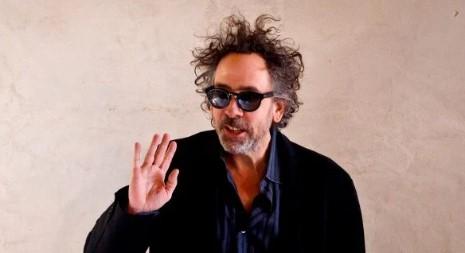Tim Burton is an American filmmaker, artist, and animator who has built an estimable net worth of $100 million. He is known for his dark, gothic, and eccentric horror and fantasy films like Beetlejuice, Edward Scissorhands, The Nightmare Before Christmas, Corpse Bride, Sweeney Todd, and Alice in Wonderland.
Table of Contents
Tim Burton Net Worth
According to the Celebrity Net Worth, Tim Burton has accumulated an impressive net worth of $100 million. The majority of his wealth comes from his highly successful films as director. Many of his movies have been major blockbusters that became franchises or classics, earning Burton backend profits on top of his upfront fees.
Batman went on to spawn a lucrative film series that has kept profits rolling in for Burton as the creator of the modern film vision of the classic superhero.
Hit films like Beetlejuice, Edward Scissorhands, Charlie and the Chocolate Factory, and Alice in Wonderland have also continued to earn revenues beyond their theatrical releases through home entertainment and merchandising. Burton’s production company gives him additional income as well.
Early Life and Education
Tim Burton was born in 1958 in Burbank, California. He was raised in typical suburban surroundings but felt outcast and alienated growing up. As a child, he found solace in horror and science fiction films, drawing cartoons and watching old reruns of horror movies on television.
Burton attended Providencia Elementary School in Burbank, where he won a local tennis tournament at age 9. Despite his athletic achievements, Burton felt socially isolated at school. His only companions were his pet dog and horror films.

At an early age, he was already interested in the visual arts and studied at the California Institute of the Arts to pursue a career as an animator and filmmaker. He received a scholarship to study at the institute and graduated in 1979.
Career Beginnings in Animation
After graduating, Burton was an apprentice animator at Walt Disney Studios, working on films like The Fox and the Hound. However, he quickly became disenchanted with the culture at Disney, which he found too corporate and restrictive of creativity.
In 1982, Burton made his first short film, Vincent, a 6-minute black-and-white stop-motion animation about a young boy fantasizing about being like the horror icon Vincent Price. The film established Burton’s gothic aesthetic and became his calling card, leading to more work.
Actor Paul Reubens saw Vincent the same year and chose Burton to direct the first Pee-Wee Herman film, Pee-Wee’s Big Adventure, in 1985.
The surprise hit was Burton’s full-length directorial debut, establishing him as a reputable director in Hollywood. With his quirky, avant-garde style, Burton began making a name for himself as an imaginative filmmaker.
Mainstream Success in Filmmaking
In 1988, Burton directed the horror comedy Beetlejuice, starring Michael Keaton as a rambunctious ghoul. The film was a critical and commercial hit, grossing over $73 million against a $13 million budget.
Beetlejuice established Burton as a profitable director and solidified his signature B-movie aesthetic influenced by 1950s horror and sci-fi films.
Burton’s next film was Batman (1989), a landmark record-breaking blockbuster. Starring Michael Keaton as the caped crusader, Batman grossed over $400 million worldwide, making it the highest-grossing film at the time and sparking a resurgence of interest in the classic DC superhero.
Burton’s Gothic vision of Batman was groundbreaking and set the tone for future dark, serious superhero films.
In 1990, Burton co-wrote, produced, and directed Edward Scissorhands, starring Johnny Depp as an artificial man with scissors for hands.
The Nightmare Before Christmas and Stop-Motion Films
In 1993, Burton produced and conceived the story for The Nightmare Before Christmas, which Henry Selick directed. The critically praised stop-motion dark fantasy film followed Jack Skellington, the king of Halloween Town, who stumbles upon Christmas Town.
Burton’s unique vision, filled with original characters and locations, contributed to the film’s cult status and lasting appeal. The Nightmare Before Christmas also spawned a merchandising and media franchise for Disney.
After The Nightmare Before Christmas, Burton produced James and the Giant Peach (1996) and 9 (2009), two more stop-motion films. In 2005, he returned to the medium to direct Corpse Bride, a stop-motion musical about a shy groom who accidentally marries a murdered bride.
Charlie and the Chocolate Factory and Sweeney Todd
In 2005, Burton directed Charlie and the Chocolate Factory, starring Depp as the eccentric candy maker Willy Wonka. The film was a hit, grossing over $474 million worldwide while providing an entertaining remake of the classic Roald Dahl children’s book.
Next, Burton directed the musical slasher Sweeney Todd (2007), which is about a murderous barber in Victorian London who kills his customers and bakes them into meat pies.

Burton’s long-time partner Helena Bonham Carter played the amorous pie shop owner Mrs Lovett. With its dark sense of humor and operatic songs, Sweeney Todd won the Golden Globe for Best Motion Picture and earned Depp an Oscar nomination.
Alice in Wonderland and Later Films
In 2010, Burton directed Alice in Wonderland with Depp as the Mad Hatter and Carter as the Red Queen. His live-action 3D version of the Lewis Carroll fantasy story was a major commercial success, becoming one of the highest-grossing films with over $1 billion worldwide.
His Dark Shadows (2012) was based on the gothic soap opera and starred Depp as an imprisoned vampire. Burton’s adaptation received mixed reviews, but his signature weird imagery was fully displayed.
In 2014, Burton directed the fantasy film Big Eyes about painter Margaret Keane’s legal battle over her work. Burton scaled back the quirky visuals for a more grounded drama centered on Amy Adams’ performance, which earned her a Golden Globe nomination.
His Miss Peregrine’s Home for Peculiar Children (2016) adapted the YA novel into an adventure fantasy about teenagers with magical abilities. Burton’s most recent film was a live-action remake of Dumbo (2019), displaying his softer side with a charming tale about a flying circus elephant.
Business Ventures and Exhibitions
Burton has expanded his brand through merchandise, live performances, exhibits, and books. His visual aesthetics and characters especially lend themselves to merchandising, including clothing, posters, mugs, and costumes.
There have also been Burton-themed exhibits at museums like MoMA in New York and live shows such as a Broadway musical adaptation of Beetlejuice.
In 1997, Burton published a book compiling his drawings and sketches called The Melancholy Death of Oyster Boy & Other Stories. Burton also released a book of his artwork in 2009 called The Art of Tim Burton. Most recently, in 2021, Burton started offering non-fungible tokens (NFTs) of his artworks digitally signed by him.
Personal Life
Tim Burton married Lena Gieseke in 1987 but divorced in 1991. The couple had no children together.
After his divorce, he met actress Helena Bonham Carter while directing Planet of the Apes in 2001. Despite coming from very different backgrounds, the two connected on set.
Burton and Carter were in a relationship from 2001 to 2014 and have two children. They lived in adjoining houses in London, allowing them to live as a family while maintaining some independence.
FAQs on Tim Burton Net Worth
How did Tim Burton get his start in the film industry?
Tim Burton started at Walt Disney Studios, where he worked as an animator apprentice. His first project there was The Fox and the Hound in 1981.
What was Tim Burton’s breakthrough film?
Tim Burton’s breakthrough film was Beetlejuice in 1988. Starring Michael Keaton as a wild ghost, Beetlejuice established Burton’s dark comedic style and was both a critical and commercial hit.
Is Tim Burton married?
Tim Burton was married to Lena Gieseke in 1987. The couple got divorced in 1991.
What artistic mediums does Tim Burton work in?
Tim Burton works primarily as a film director, producer, and screenwriter but is also a talented visual artist.
Bottom Line
Tim Burton has crafted an extraordinary career in Hollywood. His signature films have succeeded at the box office while leaving lasting influences on pop culture.
Burton’s visual artist and producer contributions have also expanded his brand. With a net worth of $100 million, Burton shows no signs of slowing down as he continues dreaming up bizarre cinematic worlds.


















